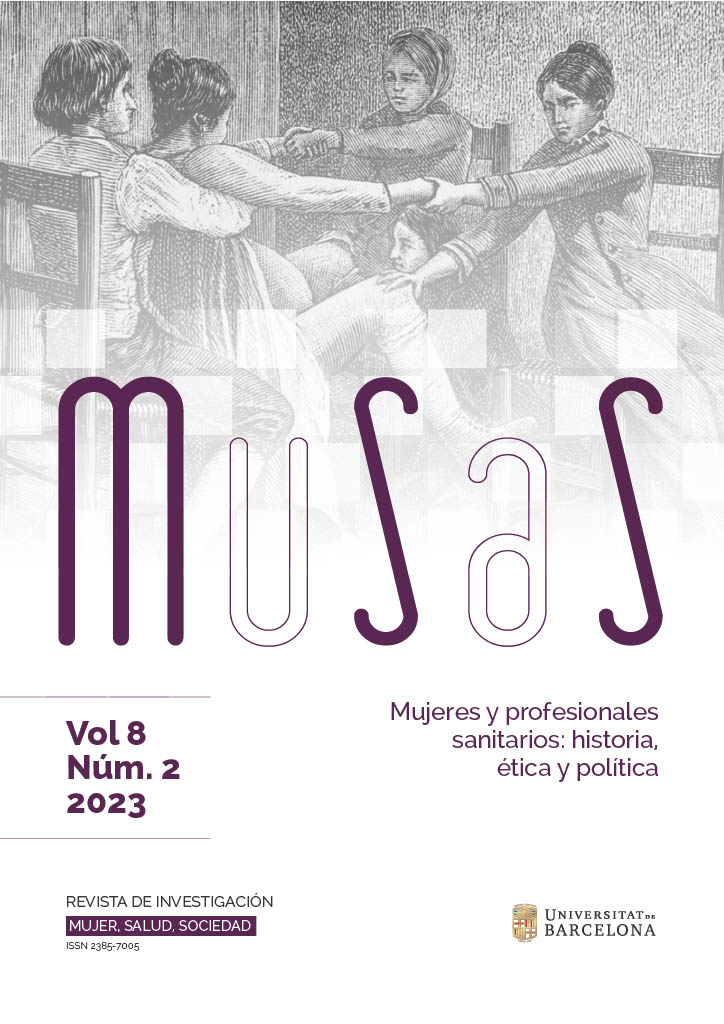Nursing Intervention in the Nonpharmacological Management of Primary Dysmenorrhea: Bibliographic Review
DOI:
https://doi.org/10.1344/musas2023.vol8.num2.6Keywords:
Primary dysmenorrhea, Diet, Physical exercise, Physiotherapy, Nursing care, Health educationAbstract
Background. Primary dysmenorrhea is defined as the menstrual pain that is not associated with any secondary pathology. It is one of the factors responsible for much of the absenteeism and the decline in school and work performance, decreasing the quality of life of women. However, the treatment has not been much studied beyond conventional treatment, thus helping to silence and neglect the health of women and the pain they suffer. Objectives. Find out what non-pharmacological alternatives we can offer to women and what role nurses play in the management of primary dysmenorrhea. Method. A bibliographic review has been carried out in the following databases: PubMed, SciELO, CUIDEN, Cochrane Library, Science Direct, CINHAL Complete, from 2016 to the present. Results. A total of 16 articles were included and selected according to pre-established criteria and classified into 5 sections. Conclusions. Diet, exercise, physical therapy, and other non-pharmacological alternatives such as aromatherapy and Reiki are effective to manage the pain of primary dysmenorrhea, also health education improves the quality of life and decreases pain. Therefore, nurses can apply or offer non-pharmacological techniques through health education, increase self-care, empower women and improve their quality of life.
Downloads
Published
Issue
Section
License
Authors publishing in this journal agree with the following terms:
- Authors hold the copyright, but MUSAS holds the right of first publication.
- Manuscripts will be disseminated with the Creative Commons CC BY-NC license, which allows sharing it with third parties as long as they recognize the authorship, the first publication right held by MUSAS and the license’s conditions






